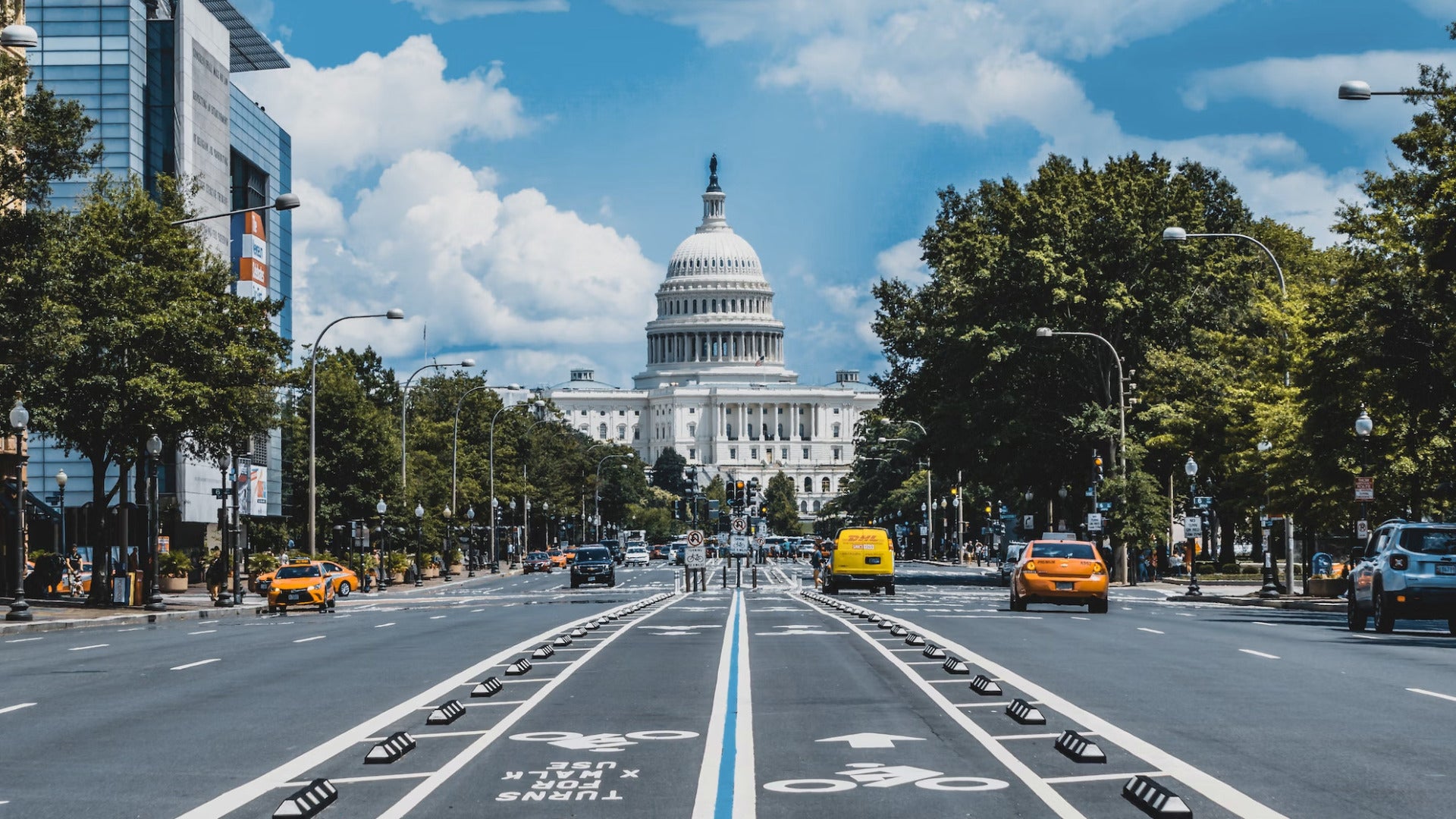Journalists, civic organizations, policymakers, and technology executives are rightly focused on protecting the integrity of the elections. With so much at stake, concerns about disinformation, voter intimidation, and the voting process itself are top of mind.
When the polls close on November 3rd, however, democracy may face a new set of challenges. With record levels of mail-in voting, counting could last days or—in some jurisdictions—weeks after election day, leaving a void for speculation about ballot-rigging or other improprieties, even if there’s no evidence of wrongdoing and counts are performing as intended.
Fueling the flames of any controversy or question about the legitimacy of the election will be heightened rhetoric among supporters of the candidates, amplified by social media. This has the makings for an unprecedented constitutional crisis that could dwarf what we saw in 2000 with the Bush v. Gore legal fight. How can we be ready?
We will be joined by:
- Sally Buzbee, Senior VP & Executive Editor, The Associated Press
- Sherrilyn Ifill, President and Director-Counsel of the NAACP Legal Defense and Educational Fund, Inc.
- Mary McCord, Legal Director, Institute for Constitutional Advocacy and Protection, Georgetown Law
- Nathaniel Persily, James B. McClatchy Professor of Law, Stanford Law School
- Vivian Schiller, Executive Director, Aspen Digital
***
 Sally Buzbee is the Senior Vice President and Executive Editor of The Associated Press. She oversees global news operations and news content in text, photos and video from journalists based in 250 locations worldwide. Previously Buzbee served as Washington bureau chief for six years, where she led AP’s coverage of the 2016 U.S. presidential campaign and election of Donald Trump and the 2012 election, including oversight of polling and investigative units, as well as coverage of institutions such as the White House, Congress and the Pentagon. Buzbee joined AP in 1988 as a reporter in Kansas and also worked as a reporter in Los Angeles and Washington. In 1996 she became assistant bureau chief for news in Washington where she ran spot news coverage and oversaw in-depth foreign affairs and national security coverage. For five years beginning in November 2004, Buzbee served as AP’s Middle East regional editor based in Cairo. In that position she led AP’s news coverage across media formats during the Iraq war, and managed personnel, logistics, budgets and security for AP’s Middle East region. Buzbee holds a journalism degree from the University of Kansas and a Master of Business Administration from Georgetown University. She has two daughters, Emma and Margaret.
Sally Buzbee is the Senior Vice President and Executive Editor of The Associated Press. She oversees global news operations and news content in text, photos and video from journalists based in 250 locations worldwide. Previously Buzbee served as Washington bureau chief for six years, where she led AP’s coverage of the 2016 U.S. presidential campaign and election of Donald Trump and the 2012 election, including oversight of polling and investigative units, as well as coverage of institutions such as the White House, Congress and the Pentagon. Buzbee joined AP in 1988 as a reporter in Kansas and also worked as a reporter in Los Angeles and Washington. In 1996 she became assistant bureau chief for news in Washington where she ran spot news coverage and oversaw in-depth foreign affairs and national security coverage. For five years beginning in November 2004, Buzbee served as AP’s Middle East regional editor based in Cairo. In that position she led AP’s news coverage across media formats during the Iraq war, and managed personnel, logistics, budgets and security for AP’s Middle East region. Buzbee holds a journalism degree from the University of Kansas and a Master of Business Administration from Georgetown University. She has two daughters, Emma and Margaret.
 Sherrilyn Ifill is the President and Director-Counsel of the NAACP Legal Defense and Educational Fund, Inc. (LDF), the nation’s premier civil rights law organization fighting for racial justice and equality, a position she has held since 2013. Ifill began her career as a Fellow at the American Civil Liberties Union, before joining the staff of the LDF as an Assistant Counsel in 1988, where she litigated voting rights cases for five years. She taught civil procedure and constitutional law at the University of Maryland School of Law for almost 20 years. She serves on the board of the Learning Policy Institute and on the Advisory Board for the Profiles in Courage Award.
Sherrilyn Ifill is the President and Director-Counsel of the NAACP Legal Defense and Educational Fund, Inc. (LDF), the nation’s premier civil rights law organization fighting for racial justice and equality, a position she has held since 2013. Ifill began her career as a Fellow at the American Civil Liberties Union, before joining the staff of the LDF as an Assistant Counsel in 1988, where she litigated voting rights cases for five years. She taught civil procedure and constitutional law at the University of Maryland School of Law for almost 20 years. She serves on the board of the Learning Policy Institute and on the Advisory Board for the Profiles in Courage Award.
 Mary McCord serves as Legal Director at the Institute for Constitutional Advocacy and Protection (ICAP) and Visiting Professor of Law at Georgetown University Law Center. McCord was the Acting Assistant Attorney General for National Security at the U.S. Department of Justice from 2016 to 2017 and Principal Deputy Assistant Attorney General for the National Security Division from 2014 to 2016. Previously, McCord was an Assistant U.S. Attorney for nearly 20 years at the U.S. Attorney’s Office for the District of Columbia. McCord graduated from Georgetown University Law School and served as a law clerk for Judge Thomas Hogan of the U.S. District Court for the District of Columbia.
Mary McCord serves as Legal Director at the Institute for Constitutional Advocacy and Protection (ICAP) and Visiting Professor of Law at Georgetown University Law Center. McCord was the Acting Assistant Attorney General for National Security at the U.S. Department of Justice from 2016 to 2017 and Principal Deputy Assistant Attorney General for the National Security Division from 2014 to 2016. Previously, McCord was an Assistant U.S. Attorney for nearly 20 years at the U.S. Attorney’s Office for the District of Columbia. McCord graduated from Georgetown University Law School and served as a law clerk for Judge Thomas Hogan of the U.S. District Court for the District of Columbia.
 Nathaniel Persily is the James B. McClatchy Professor of Law at Stanford Law School. Professor Persily’s scholarship and legal practice focus on American election law or what is sometimes called the “law of democracy,” which addresses issues such as voting rights, political parties, campaign finance, redistricting, and election administration. He is codirector of the Stanford Cyber Policy Center, Stanford Program on Democracy and the Internet, and Social Science One, a project to make available to the world’s research community privacy-protected Facebook data to study the impact of social media on democracy. He is also a member of the American Academy of Arts and Sciences. Prior to joining Stanford, Professor Persily taught at Columbia and the University of Pennsylvania Law School, and as a visiting professor at Harvard, NYU, Princeton, the University of Amsterdam, and the University of Melbourne.
Nathaniel Persily is the James B. McClatchy Professor of Law at Stanford Law School. Professor Persily’s scholarship and legal practice focus on American election law or what is sometimes called the “law of democracy,” which addresses issues such as voting rights, political parties, campaign finance, redistricting, and election administration. He is codirector of the Stanford Cyber Policy Center, Stanford Program on Democracy and the Internet, and Social Science One, a project to make available to the world’s research community privacy-protected Facebook data to study the impact of social media on democracy. He is also a member of the American Academy of Arts and Sciences. Prior to joining Stanford, Professor Persily taught at Columbia and the University of Pennsylvania Law School, and as a visiting professor at Harvard, NYU, Princeton, the University of Amsterdam, and the University of Melbourne.
 Vivian Schiller is the Executive Director of Aspen Digital. A longtime executive at the intersection of journalism, media and technology, Schiller has held executive roles at some of the most respected media organizations in the world. Those include: President and CEO of NPR; Global Chair of News at Twitter; General Manager of NYTimes.com; Chief Digital Officer of NBC News; Chief of the Discovery Times Channel, a joint venture of The New York Times and Discovery Communications; and Head of CNN documentary and long form divisions. Documentaries and series produced under her auspices earned multiple honors, including three Peabody Awards, four Alfred I. DuPont-Columbia University Awards, and dozens of Emmys. Schiller is a member of the Council on Foreign Relations; and a Director of the Scott Trust, which owns The Guardian.
Vivian Schiller is the Executive Director of Aspen Digital. A longtime executive at the intersection of journalism, media and technology, Schiller has held executive roles at some of the most respected media organizations in the world. Those include: President and CEO of NPR; Global Chair of News at Twitter; General Manager of NYTimes.com; Chief Digital Officer of NBC News; Chief of the Discovery Times Channel, a joint venture of The New York Times and Discovery Communications; and Head of CNN documentary and long form divisions. Documentaries and series produced under her auspices earned multiple honors, including three Peabody Awards, four Alfred I. DuPont-Columbia University Awards, and dozens of Emmys. Schiller is a member of the Council on Foreign Relations; and a Director of the Scott Trust, which owns The Guardian.

